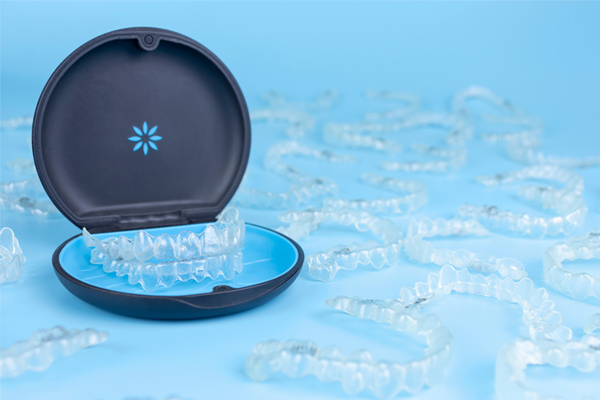How a General Dentist Treats Tooth Decay

If you're looking for help from a general dentist to treat tooth decay, there are several things to consider before making an appointment with one to ensure your visit goes as smoothly as possible. First, you'll want to find the best dentist for treating tooth decay. The second thing you'll want to do is think about what kind of dental care you need before your appointment; this will make the experience easier and less stressful for you and your dentist.
Let's take a closer look at how your dentist can help treat tooth decay and keep your smile looking and functioning at its best. You may be surprised at the many solutions that are available to get your teeth back to their very best.
Filling teeth
One of the most common procedures in a dentist's office is tooth fillings. A general dentist has access to materials that can be used to fill teeth effectively. The key thing about filling teeth is making sure that you're using appropriate materials for each specific type of tooth. For example, you can use different types of filling materials for your molars and your incisors. A dentist also needs to make sure that their cavity preparations are appropriate for each specific type of tooth, especially when treating tooth decay. If they don't know how to prepare a cavity properly, they risk causing damage or additional pain during treatment.
Root canal treatment
The most common cause of tooth decay is plaque. Plaque is food particles mixed with bacteria that stick to your teeth after you eat. The bacteria in plaque release acids that cause tooth decay, also known as cavities. You can still eat when you have a cavity but eating hard or sticky foods can hurt. If your cavity gets worse and spreads into the root, that's when it can become more serious than just some pain when chewing certain foods. It's important to see your general dentist regularly so they can look for these signs and identify any problems early on before you start having chronic pain or more issues arise later down the road.
To treat tooth decay, your dentist will start by examining it to see how extensive it is. Your dentist may also take x-rays to see how far it's spread and what else might be affected. The next step is treatment, which usually involves drilling out all the decayed parts of your tooth, so there's nothing left but healthy tooth pulp. The pulp doesn't have any nerve endings so you won't feel any pain during treatment. Then comes root canal treatment, which removes all your tooth's infected tissues and replaces them with fillings or crowns that keep everything intact until you can replace it with a dental implant or bridge. While this process is a bit extensive, it ensures that all of the build-up is removed and a healthy tooth remains.
Crowns
Another possible solution is crowns. If you are missing one or more teeth, your dentist may recommend using dental crowns to restore your smile. Crowns are caps made of porcelain, metal, or ceramic material placed over existing teeth to improve their appearance and restore function. They can also protect weakened teeth from further damage caused by eating hard foods. When your dentist evaluates whether you're a good candidate for crowns, he will consider various factors, including your jawbone structure; how much gum tissue is present on your tooth roots; if any tooth root treatments have been done to save badly decayed teeth; and if there's enough tooth structure remaining to support the new crown.
Schedule an appointment with your dentist
If you've been struggling with tooth decay, you may feel embarrassed or overwhelmed about what you should do next. The good news is that your dentist can offer solutions based on your exact needs. There's no need to suffer from tooth decay. Instead, rely on your dentist to provide the help that you need to get your tooth healthy and strong.
Tooth decay is something that many people experience, but it's critical that it's handled by your dentist. Putting a treatment plan in place will ensure that your teeth are preserved as much as possible and that you get on the right path toward a healthier smile. Contact your dentist today to learn more bout how they can help with your tooth decay issues.
Request an appointment here: https://thechesterfielddentist.com or call Chesterfield Dentist at (804) 412-0867 for an appointment in our Chester office.
Check out what others are saying about our dental services on Yelp: General Dentist in Chester, VA.
Recent Posts
A general dentist shared some ways to help prevent bad breath. This is a topic no one wants to discuss. Bad breath happens to everyone at one point or another. If you take proper precautions, you can avoid having bad breath. We should openly talk about this taboo topic. The more we talk about it, the…
Most general dentists agree that having a broken tooth is more serious than it gets credit for. It is easy to overlook damage, especially if no pain is associated with it or the damage is not visible. However, leaving a damaged tooth untreated can result in serious consequences. This article will discuss four ways our…
Besides ourselves, one other person plays a highly important role in maintaining our oral health, our general dentist. You see, the dentist is responsible for much of the work that goes into our mouths, and without them, most of us would be at a loss as to what to do to protect our teeth, tongue,…
Clenching and grinding the teeth, also known as bruxism, can wear them down and cause jaw and ear pain. General dentists can help patients with bruxism avoid pain and discomfort. This blog will review the causes, symptoms, and treatments for teeth grinding.It is common for people to be unaware they clench or grind their teeth…


